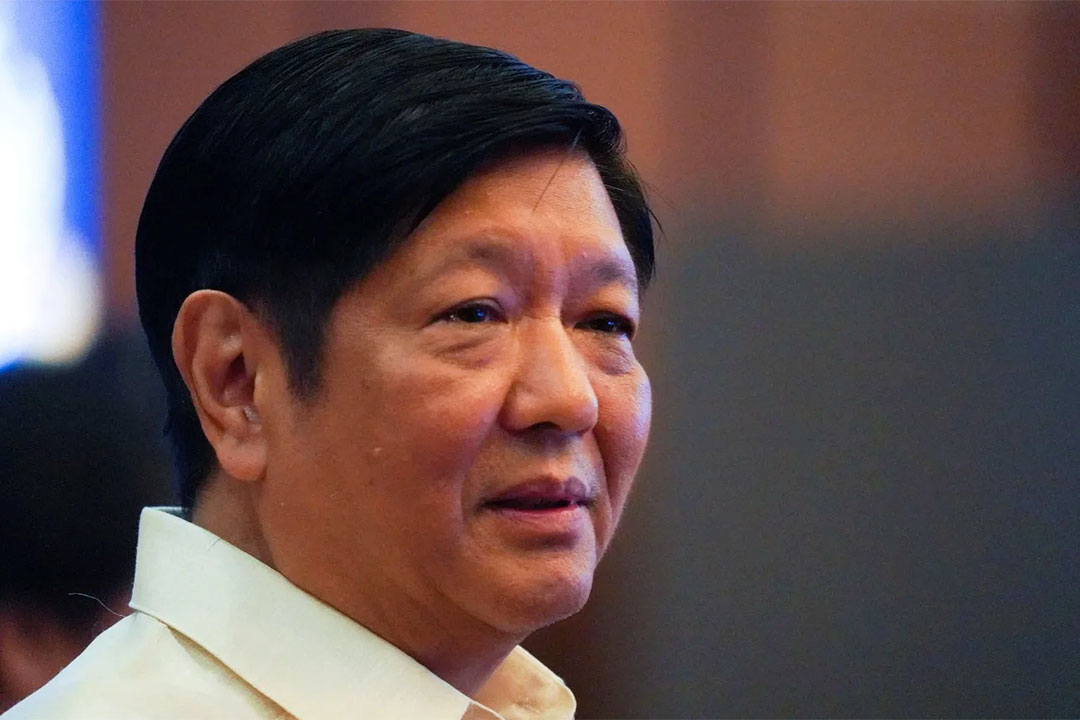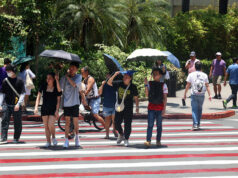Mindanao separation talk destabilizing however farfetched, analysts say

By Kyle Aristophere T. Atienza, Reporter
EX-PRESIDENT Rodrigo R. Duterte’s call for the separation of Mindanao from the Philippines is destabilizing and could pull the Philippine economy down, however farfetched the idea is, according to a former presidential political adviser.
“He’s thinking that a failed secession attempt will be devastating for the economy,” Ronald M. Llamas, who used to be the political adviser of the late President Benigno S.C. Aquino III, said by telephone on Sunday. “Even if the attempt fails, it will be devastating for the Marcos administration.”
“A failed mutiny, coup or uprising will be devastating for the economy,” he said, adding that this could cancel any investment pledges that President Ferdinand R. Marcos, Jr. secured in his past foreign trips.
Harry L. Roque, who was Mr. Duterte’s spokesman, did not immediately reply to a Viber message seeking comment.
The National Security Council vowed to quell any secession attempts.
In a statement, the agency said it would “not hesitate to use its authority and forces to quell any attempts to dismember the republic.”
“Any attempt to secede any part of the Philippines will be met by the government with resolute force, as it remains steadfast in securing the sovereignty and integrity of the national territory.”
Mr. Duterte last week said local political forces would be regrouping in the southern Philippine region of Davao to start a signature campaign for the separation of Mindanao from the Philippines.
He made the remark days after accusing Mr. Marcos of being a drug addict at a political rally in Davao City that opposed the push to amend the 1987 Constitution.
Mr. Duterte also accused Mr. Marcos of wanting to stay in power beyond his term and slammed the International Criminal Court for its investigation of his deadly war on drugs that had killed thousands.
Mr. Marcos, 66, has veered away from his predecessor’s pivot to China, standing up to its neighbor and boosting security ties with the US and other Western allies.
“Imagine an ex-President threatening a sitting President with an uprising, destabilization, secession, mutiny and even a hint of assassination — publicly,” Mr. Llamas said. He noted Mr. Duterte had said during the rally that his successor would have been a target of the anti-illegal drug campaign if he was still the President.
Mr. Marcos fired back by saying the firebrand leader might be reeling from the effects of fentanyl use. On Sunday, he vowed to avoid political mudslinging.
“In the New Philippines, there is no space for name-calling and pulling down,” he said in a video in Filipino posted on his YouTube channel. “Let us prioritize our nation. Let us change because there won’t be a new Philippines without a new Filipino.”
Mr. Duterte and his daughter Vice-President Sara Duterte-Carpio would benefit from an economy rigged by instabilities, Mr. Llamas said. “They are the next opposition in the midterm elections. The Vice-President, even if she’s still with the Cabinet, is clearly against the administration.”
He noted that Ms. Duterte-Carpio, who is also Education secretary, has opposed the Charter change push and a government decision to restart peace talks with the Maoist movement. “You cannot do that if you are a Cabinet secretary because you are supposed to follow your boss.”
The Office of the Vice President did not immediately reply to a Viber message seeking comment.
Ms. Duterte-Carpio would likely resign as Education chief months before the 2025 midterm elections as she criticizes the Marcos government “more sharply.”
“There is nothing concrete about the [Mindanao] proposal, there’s not even a study on how Mindanao will become should it secede. For all we know, this is part of his strategy to be in the national spotlight after his presidency,” said Jan Robert R. Go, a political science professor at the University of the Philippines.
“Remember, the 2025 midterm election is close, and this might be a preparation for either him or his candidates,” he said in a Facebook Messenger chat. “This is another ploy to attract people’s interest and he might succeed.”
Antonio P. Contreras, a political expert based in the University of the Philippines Los Baños, said Mr. Duterte’s idea does not have a constitutional basis, adding that any secessionist move might be considered seditious. “You can only have that if you rebel.”
A number of lawmakers and former Muslim separatists have rejected the secessionist idea, which they said would erode the gains from past peace negotiations.
Talks of secession would probably die out “as soon as another confrontational event occurs to sustain his image as an opposition leader,” Anthony Borja, who teaches political science at De La Salle University, said via Messenger chat.
He said the call for Mindanao separation is “another manifestation of Duterte’s tribalistic brand that marries personality politics with ethno-linguistic and regional boundaries.”
“We can consider his statements on secession as either mere political snarling — a means of saying that he is still top dog — or a way to deliberately test his remaining clout,” he added.



